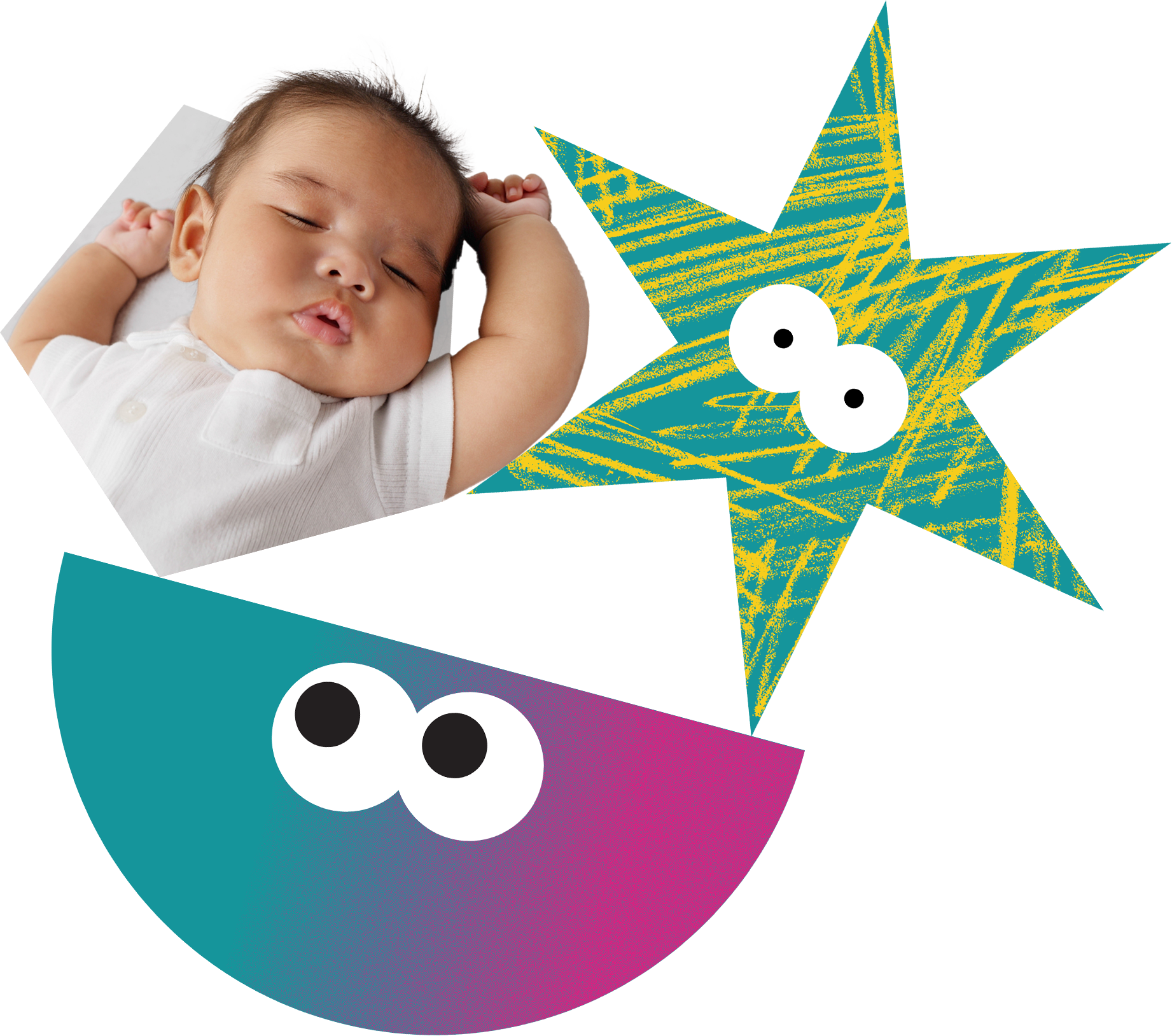Home >
Sleepfullness
Sleepfullness
For all parents to support you with your most common infant and child sleep issues
Sleep is important for our physical and mental wellbeing, and we know that from birth, sleep is fundamental for healthy brain development. While sleep is a natural instinct, it’s also a skill we build over time—learning and understanding how to unwind and discovering the right amount of sleep our bodies need.

Togetherness supports nurturing, connected relationships between parents and children, helping children grow, learn, and flourish every step of the way. It can be helpful to think about your child’s development when it comes to sleep, considering their environment and how they feel about sleep.
Everyone is unique with different needs, and learning to sleep independently is a skill we develop over time. It’s also important to take a moment to reflect on your own emotional health and relationship with sleep as this can affect the way you support your children during the night.
Five of the most common sleep issues addressed
We teamed up with our Togetherness trained Health Visitors to support families who volunteered to share their sleep challenges to help address some of the most common issues and share helpful advice.
1. My newborn won’t sleep in their cot or crib at night
Conall (4-weeks-old) wakes in the night for regular feeding. Routines are yet to become a helpful parenting tool for his sleep. But what’s normal, and how can you start to build healthy habits?
Health Visitor, Paulene, and Consultant Clinical Psychologist, Rebecca, offer their reflections.
2. My baby isn’t sleeping through the night
George (8-months-old) and Jessica (10-months-old) wake regularly in the night. They are learning that sleep is a time for separation, gradually taking their cues from their environment and the people around them.
Health Visitor, Paulene, and Consultant Clinical Psychologist, Rebecca, share some helpful advice to help you respond sensitively to the changes in your baby’s development and build the foundations for a healthy sleep pattern.
3. My toddler won’t stay in their bed
Mum, Sarah, considers how to help her daughter, Holly (2-years-old), settle to sleep in her own bed.
Health Visitor, Paulene and Consultant Clinical Psychologist, Rebecca, highlight the importance of understanding the world from your child’s perspective to help them settle down at night.
4. My child wakes regularly in the night
Nayel (14-months-old) and James (3-years-old) regularly wake in the night, calling for attention.
Health Visitors, Paulene and Kate, and Consultant Clinical Psychologist, Rebecca, discuss separation anxiety and different ways of comforting at night.
5. My child is having nightmares and terrors
Mum, Hannah, describes her son’s experiences of night terrors, waking her regularly at night.
Typically, nightmares and night terrors occur between 6 months and 6 years old. Understanding what they mean and how to reassure your child can make a big difference for the whole family.
Online learning pathways
Many of our pathways for parents consider sleep within a broader approach to tuning into your child’s wellbeing needs.
- Understanding your baby →
- Understanding your child: from toddler to teenager →
- Understanding your child with additional needs →
Further resources about breastfeeding and sleep :
- NHS – ‘Helping your baby to sleep’
- NHS – ‘Sleep and young children’
- BASIS – Baby Sleep Information Source (basisonline.org.uk)
- Caring for your baby at night leaflet – Baby Friendly Initiative (unicef.org.uk)
- Breastfeeding at night – La Leche League GB
- Breastfeeding and SIDS – The Lullaby Trust
Your experiences with sleep: family case studies
Our sleep guides have been created with the help of families around the West Midlands who kindly shared their experience with sleep issues. In these videos, we reflect on their experiences and some of the approaches they have tried.

My baby isn’t sleeping through the night: Francine and Dan’s story
Understanding the journey and complexities of sleep: Katie and James’s story
My child is having nightmares or night terrors: Hannah’s story
Breastfeeding and sleep
Elaine Kindred-Spalding, Registered Midwife, Lactation Consultant and Infant Feeding Co-ordinator, discusses feeding and sleep. She addresses some common myths and assumptions about breastfeeding and encourages parents to feed responsively.
Further resources about breastfeeding and sleep you may find helpful to look at:
BASIS – Baby Sleep Information Source (basisonline.org.uk)
Caring for your baby at night leaflet – Baby Friendly Initiative (unicef.org.uk)
